44 cholesterol in food labels
Food Calculator: Carbs, Calories, Fat, Protein and More - WebMD Jan 16, 2015 · Get the nutrition lowdown on all your meals and everything in between. Find out the calories, carbs, fat, fiber, and more in over 37,000 foods and drinks. Whether you're eating out or dining in ... How To Read Cholesterol Labels - HealthyCholesterolClub.com In fact, about 25% of the cholesterol in your blood comes from the food you eat. What To Look For On Nutrition Labels Nutrition labels on foods tell you how much of each nutrient or fat is in the item, based on the recommended serving size. The numbers and percentages are written for a 2,000 calorie/day diet.
Reading food labels: Tips if you have diabetes - Mayo Clinic Food labels can be an essential tool for diabetes meal planning. COVID-19: Advice, updates and vaccine options. ... Look for foods with fats, cholesterol and sodium on the low end of the Daily Value; keep fiber, vitamins and minerals on the high end. If your doctor or registered dietitian recommends more or less than 2,000 calories a day, you ...
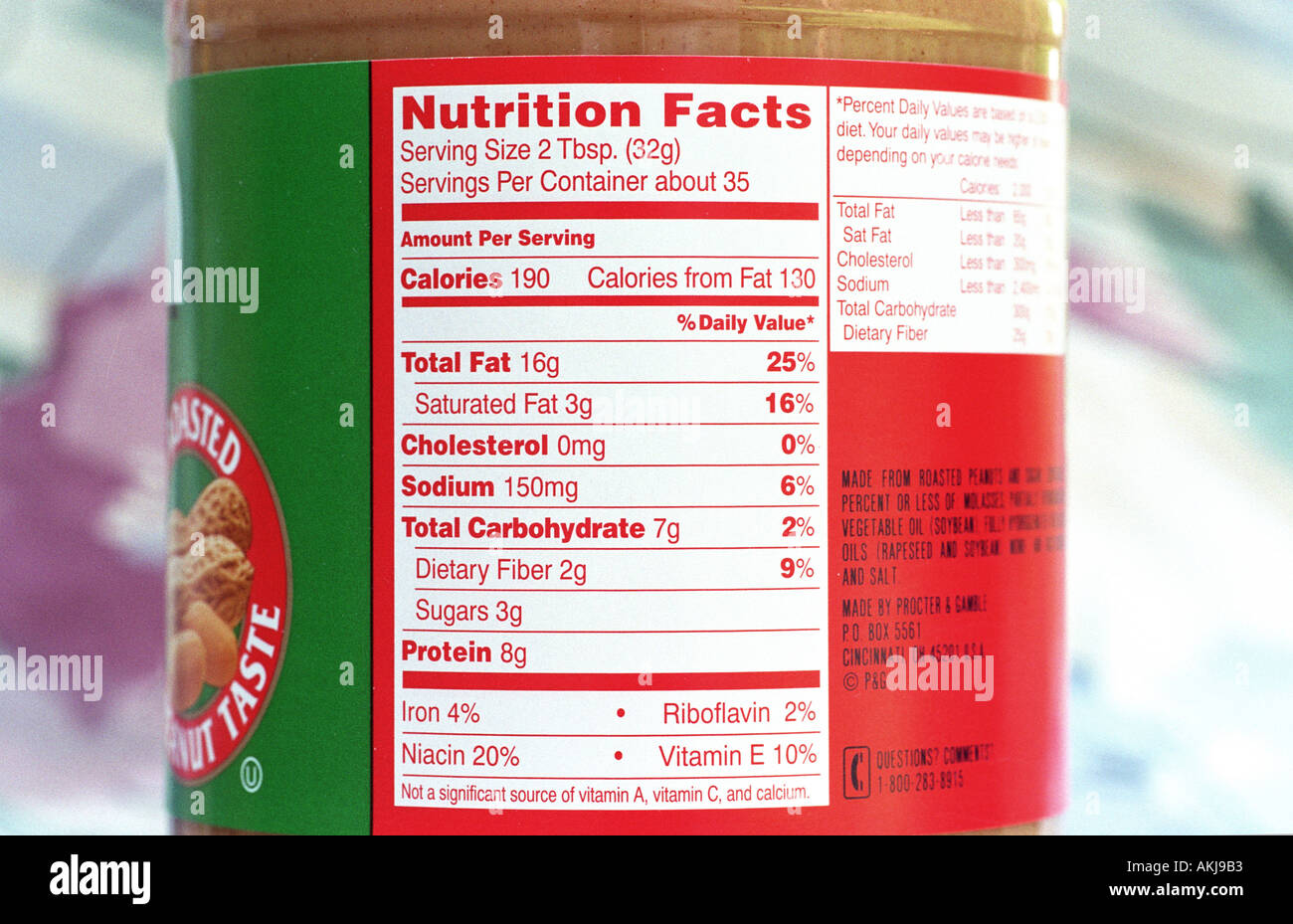
Cholesterol in food labels
Learn About Cholesterol Free Food Labels | Chegg.com Item labels offer information, including the amount by portion, on the fats and cholesterol level of food. Choose the one with the fewest amounts of fat and cholesterol to compare the same items. Panel on 'nutrition facts': Food producers have been required since 1994 to disclose information on some nutrients of major public interest. Understanding Food Terms - American Cancer Society Low. How you might see it on a label: low-fat, low-sodium, low-cholesterol, low-calorie What it means: This term can be used on foods that can be eaten often and you still won't get more than the recommended amount of that nutrient. The nutrients that can be described with this label are: Fat; Saturated fat; Cholesterol; Sodium (salt) Figuring Out Food Labels (for Kids) - Nemours KidsHealth A food with 5% or less of a nutrient is low in that nutrient. A food with 10%–19% of a nutrient is a good source of that nutrient. A food with 20% or more of a nutrient is high in that nutrient. The information on food labels is based on an average adult diet of 2,000 calories per day.
Cholesterol in food labels. Eggs | The Nutrition Source | Harvard T.H. Chan School of ... Eggs were previously associated with heart disease risk as a result of their high cholesterol content. However, a solid body of research shows that for most people, cholesterol in food has a smaller effect on blood levels of total cholesterol and harmful LDL cholesterol than does the mix of fats in the diet. [2-4] What do cholesterol-free and low-cholesterol food labels mean? - Sharecare Cholesterol free means that the food must contain fewer than 2 milligrams of cholesterol and 2 grams or less of saturated fat per serving. Please realize that a food claiming to be low in cholesterol or cholesterol free does not mean the food is fat free. Vegetable oils contain no cholesterol, but they are 100% fat. Cholesterol Content of Foods | Patient Education | UCSF Health Use the following tables to check the cholesterol and fat content of the foods you eat. This will help you keep track of your daily cholesterol intake. Note: Cholesterol is only found in animal products. Fruits, vegetables, grains and all other plant foods do not have any cholesterol at all. 11 High Cholesterol Foods — Which to Eat, Which to Avoid - Healthline Eggs, cheese, shellfish, pastured steak, organ meats, sardines, and full-fat yogurt are cholesterol-rich, nutritious foods that make healthy additions to your diet. 8-11: High cholesterol...
Reading Food Labels | ADA - American Diabetes Association It’s time to decode those food claims. Trying to figure out nutritional information on labels and packaging isn’t easy. The good news is that we can help. Untangle packaging claims. If you get tripped up on food content claims, you’re not alone. Fat free vs. low fat vs. reduced fat. Low ... High Cholesterol Ranges: Symptoms, Causes, Chart, Diet ... Nov 12, 2020 · Lower cholesterol levels start at the grocery store. Read food labels, and buy foods low in saturated fat and low in cholesterol. Work with your healthcare professional to determine whether medication is needed to control high cholesterol. Misleading Nutrition and Food Labels - Health Jun 07, 2012 · Terms like "fat free" or "all natural" are often slapped on a food item that may not be healthy at all. Check out our list of the 16 most common and most misleading phrases manufacturers use on food. Understanding Food Nutrition Labels | American Heart Association When the Nutrition Facts label says a food contains "0 g" of trans fat, but includes "partially hydrogenated oil" in the ingredient list, it means the food contains some trans fat, but less than 0.5 grams per serving. So, if you eat more than one serving, you could end up eating too much trans fat.
Cholesterol On Food Labels - Cholesterol Cholesterol On Food Labels. Most individuals should make every effort to maintain their cholesterol under 200 milligrams/deciliter (mg/dl), or regarding 5.2 millimols/litre (mmol/L), if you have a hereditary background of heart disease or you are at a high risk for creating a stroke or a heart disease. Controlling Cholesterol with Statins | FDA - U.S. Food and Drug ... Español. You go to the gym faithfully, and try to watch your diet. But after your annual physical, you find out that your blood cholesterol is surprisingly high. Easy Guide to Understanding Food Labels When You Have High Cholesterol ... This means that your food may contain trans-fat even if the food label says 0 gram. Therefore it's important to check the ingredient list (more on this later). Cholesterol guidelines currently recommend having not more than 300 milligrams of cholesterol per day, and if you have heart disease, aim for less than 200 milligrams per day. 2. How to Understand and Use the Nutrition Facts Label | FDA - U.S. Food ... Dietary fiber, vitamin D, calcium, iron ad potassium are nutrients on the label that Americans generally do not get the recommended amount of. They are identified as nutrients to get more of....
Food Labels: Fat & Cholesterol | Home & Garden Information Center The 2015 Dietary Guidelines for Americans recommends the following intakes of fat and cholesterol every day: total fat—20 to 35% of calories, depending on age and gender (65 grams for the 2,000-calorie intake level used in the Daily Value)* saturated fat—less than 10% of calories** trans fat— keep as low as possible
How to Tell if Foods Are Low or High Cholesterol - Verywell Health Each food label should include milligrams (mg) of cholesterol per serving. Don't forget to look at the serving size as well. Sometimes products can seem low in cholesterol, but if you eat more than the recommended servings at one sitting, then you can end up consuming a lot more cholesterol than you intended.
Cholesterol | British Dietetic Association (BDA) 2. Look at food labels. Compare labels and choose foods with green or amber labels for ‘saturates’. Foods are high (red) in saturated fat if they contain more than 5g of saturates per 100g. Foods containing 1.5g or less per 100g are low (green) in saturated fat.
Cholesterol: Top foods to improve your numbers - Mayo Clinic Oatmeal, oat bran and high-fiber foods Oatmeal contains soluble fiber, which reduces your low-density lipoprotein (LDL) cholesterol, the "bad" cholesterol. Soluble fiber is also found in such foods as kidney beans, Brussels sprouts, apples and pears. Soluble fiber can reduce the absorption of cholesterol into your bloodstream.
What Does Cholesterol Mean On Food Labels - Cholesterol What Does Cholesterol Mean On Food Labels Most individuals ought to aim to preserve their cholesterol under 200 milligrams/deciliter (mg/dl), or about 5.2 millimols/litre (mmol/L), if you have a genetic background of heart disease or you go to a high risk for developing a stroke or a heart disease.
Understanding Ingredients on Food Labels - American Heart Association You might see sugar listed as the fourth ingredient in a product and think it's not so bad. But sugar can also be listed as high-fructose corn syrup or corn syrup, agave nectar, barley malt syrup or dehydrated cane juice, to name just a few. Read more about sugar and sweeteners. Sodium also has several names.
Should I check the cholesterol on nutrition labels? Major dietary cholesterol contributors — meat, fish, and chicken — often have no label. Having less than 4-6 oz of those per day and less than 2-4 eggs per week will generally keep your cholesterol reasonable. And that's a smart idea anyhow, to leave room for more artery-friendly fruits, veg, whole grains, beans, nuts, seeds, etc."
How to Read the Nutrition Facts Label on Packaged Foods - WebMD Sugar Alcohols You may see these reduced-calorie sweeteners (which include sorbitol, xylitol, and erythritol) in products labeled "no sugar added" or "sugar free." They have fewer calories than...
What Is Cholesterol In Food Labels - Cholesterol What Is Cholesterol In Food Labels. High cholesterol is the most common reason for cardiovascular disease. The avoidance of cardiovascular disease is essential to decreasing the danger of cardiac arrest as well as strokes. The therapies for high cholesterol entail medications and healthy way of life renovations. The healthy and balanced ...
Food Packaging Claims | American Heart Association You can use this general guidance: "Free" means a food has the least possible amount of the specified nutrient. "Very Low" and "Low" means the food has a little more than foods labeled "Free." "Reduced" or "Less" mean the food has 25% less of a specific nutrient than the regular product.
Figuring Out Food Labels (for Kids) - Nemours KidsHealth A food with 5% or less of a nutrient is low in that nutrient. A food with 10%–19% of a nutrient is a good source of that nutrient. A food with 20% or more of a nutrient is high in that nutrient. The information on food labels is based on an average adult diet of 2,000 calories per day.
Understanding Food Terms - American Cancer Society Low. How you might see it on a label: low-fat, low-sodium, low-cholesterol, low-calorie What it means: This term can be used on foods that can be eaten often and you still won't get more than the recommended amount of that nutrient. The nutrients that can be described with this label are: Fat; Saturated fat; Cholesterol; Sodium (salt)
Learn About Cholesterol Free Food Labels | Chegg.com Item labels offer information, including the amount by portion, on the fats and cholesterol level of food. Choose the one with the fewest amounts of fat and cholesterol to compare the same items. Panel on 'nutrition facts': Food producers have been required since 1994 to disclose information on some nutrients of major public interest.


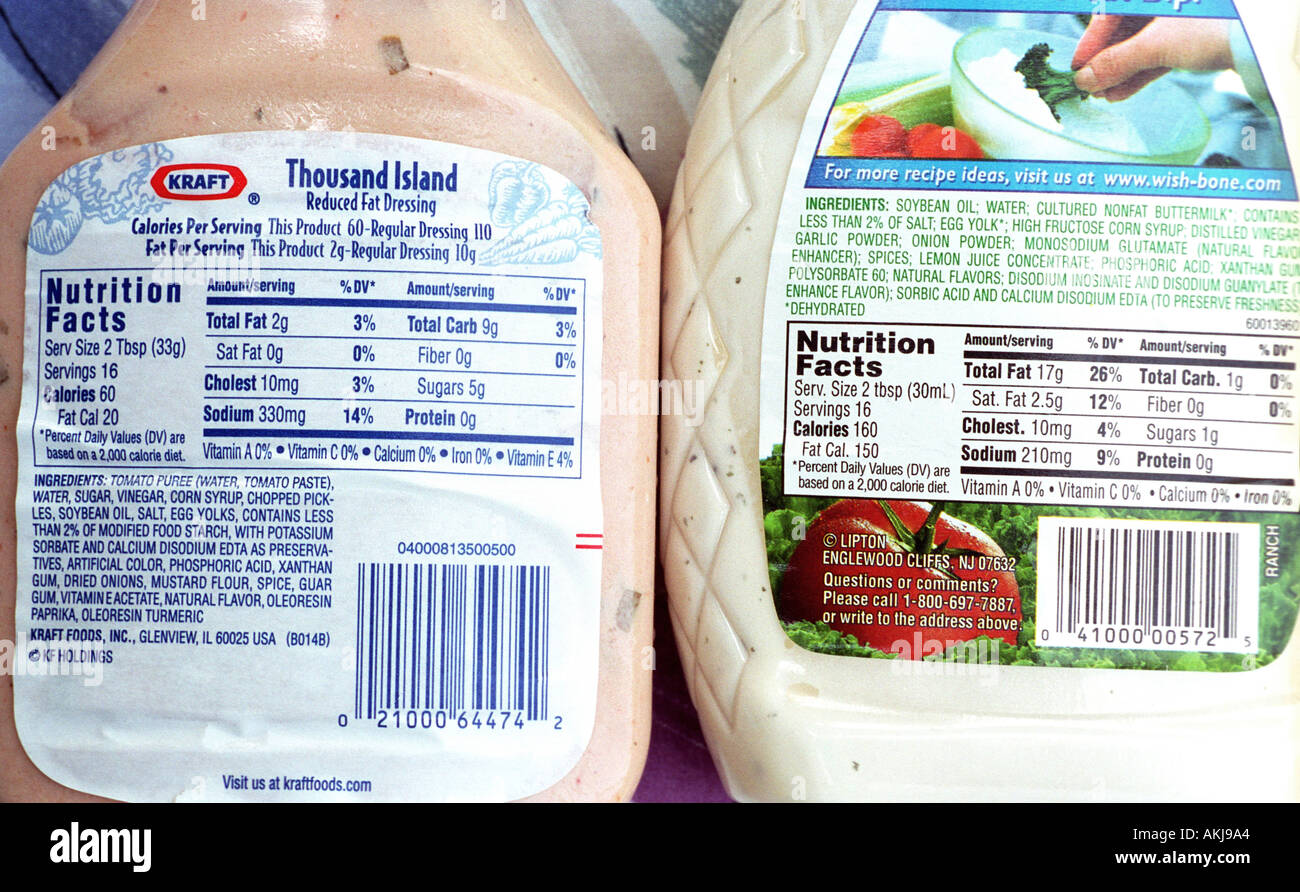
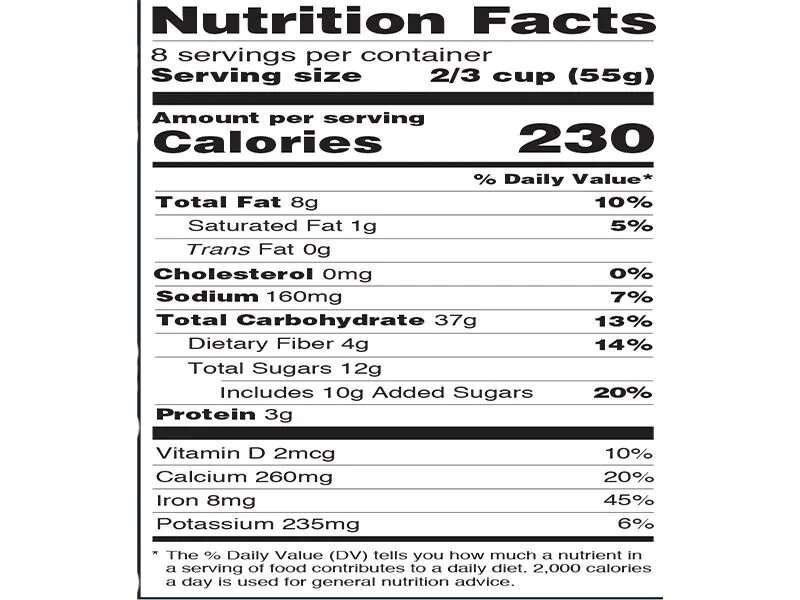



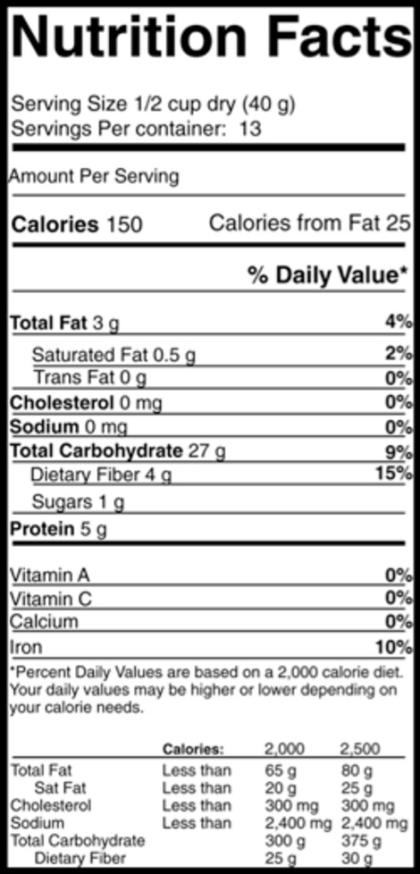
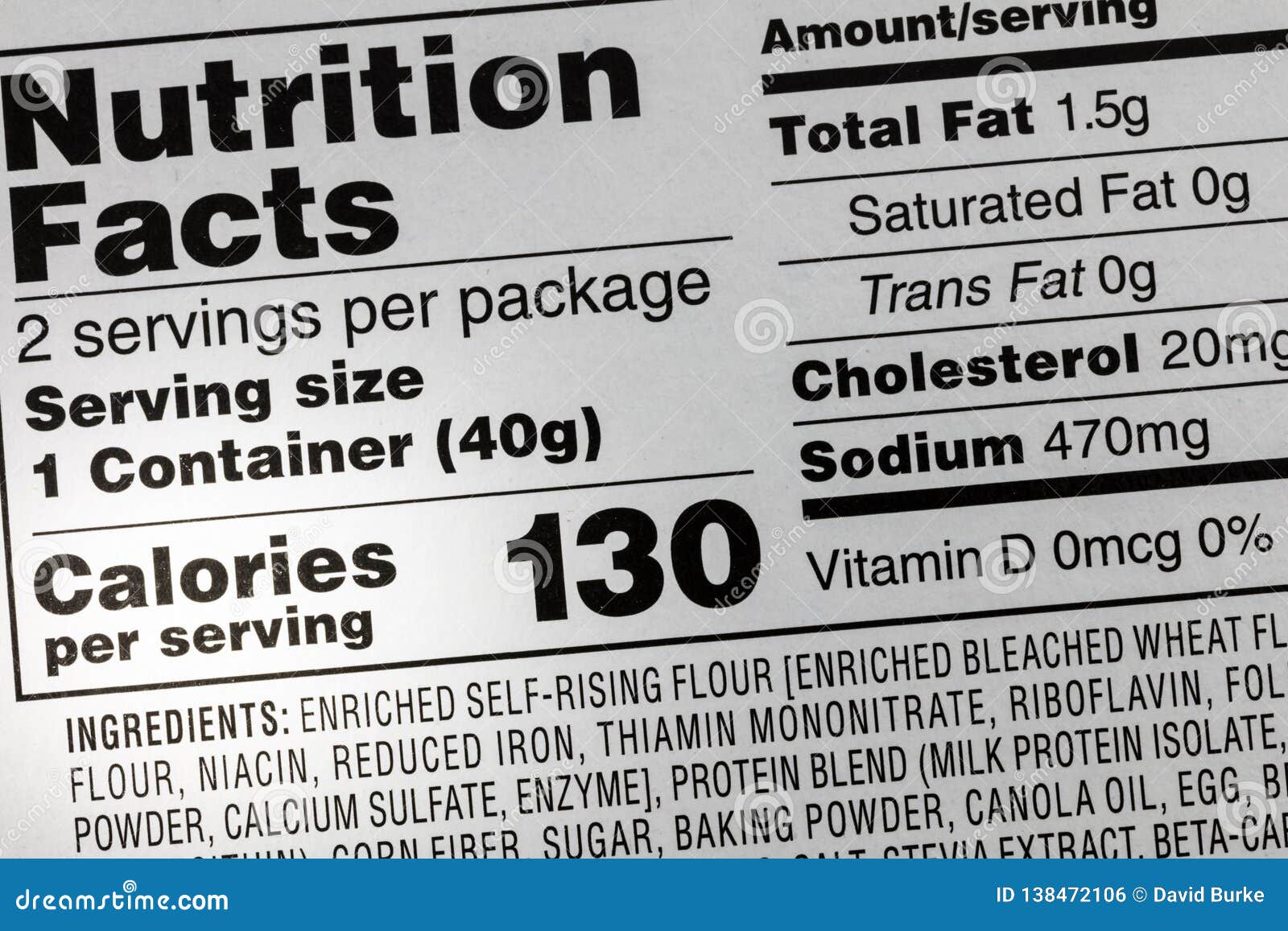

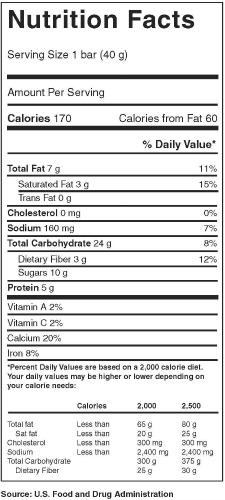
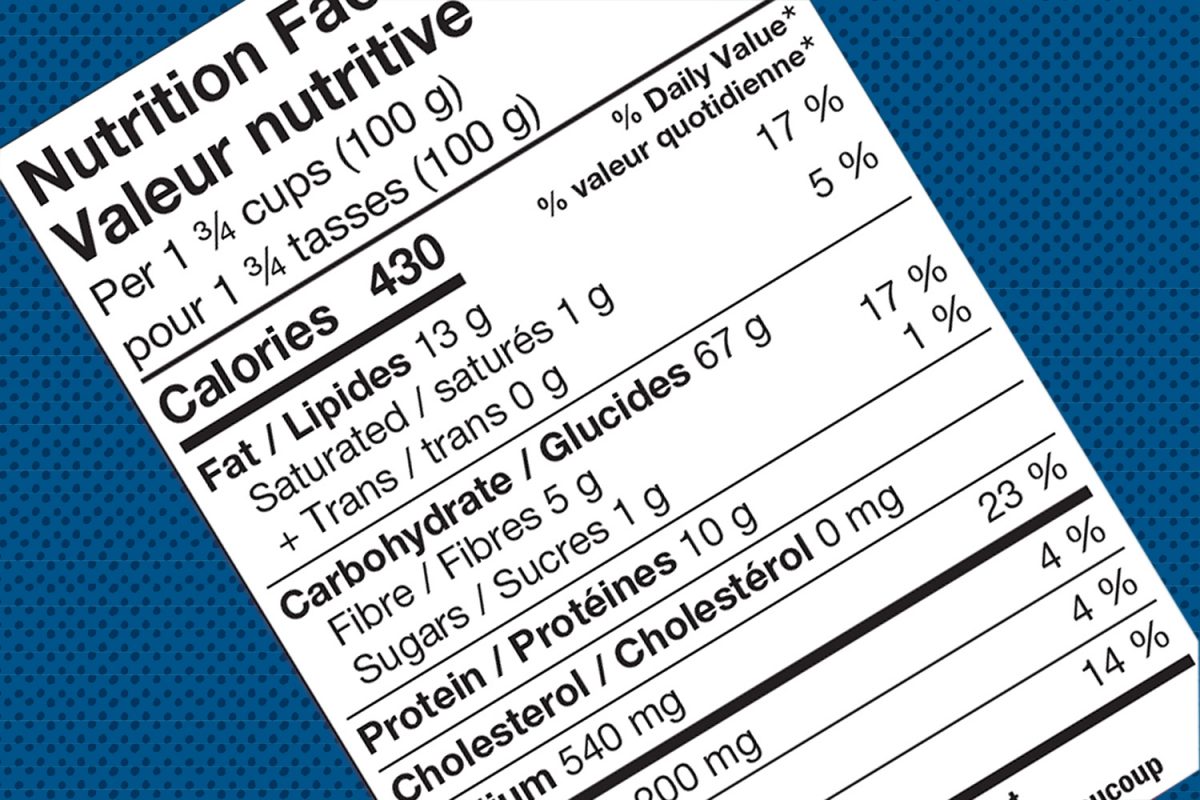
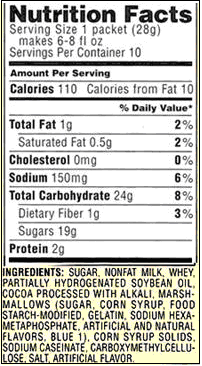
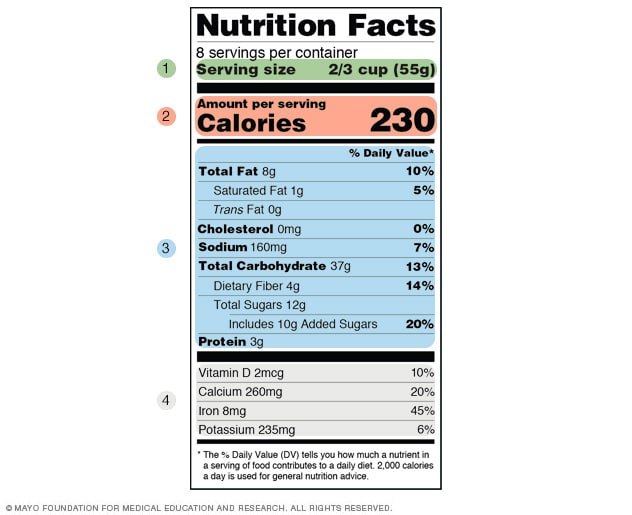

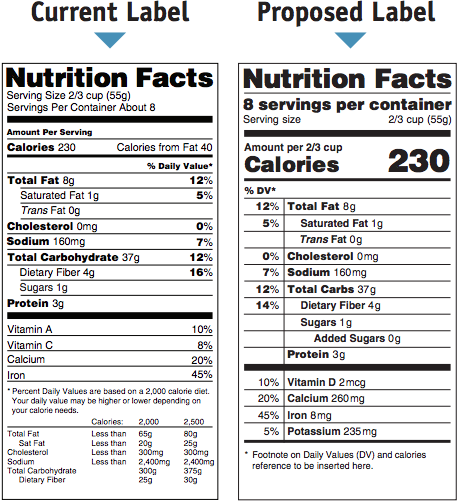






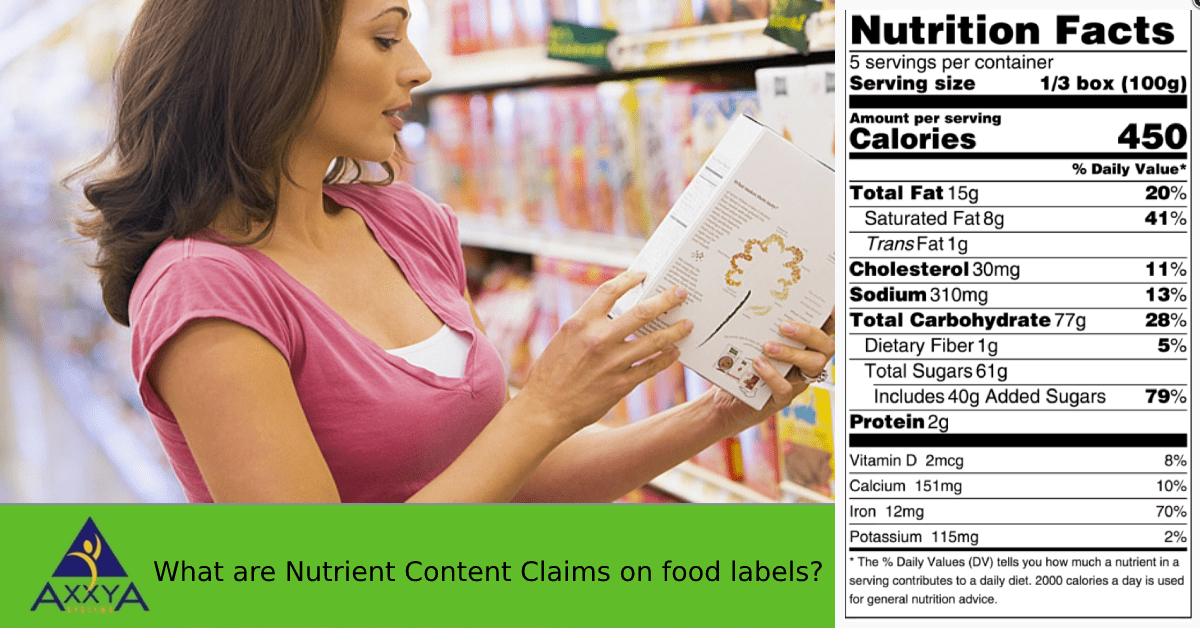





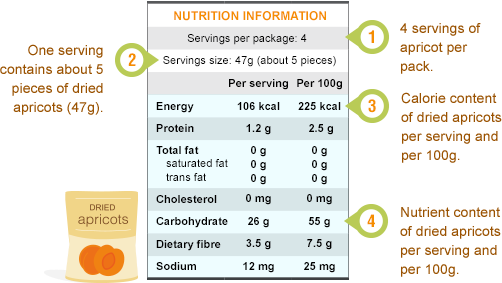
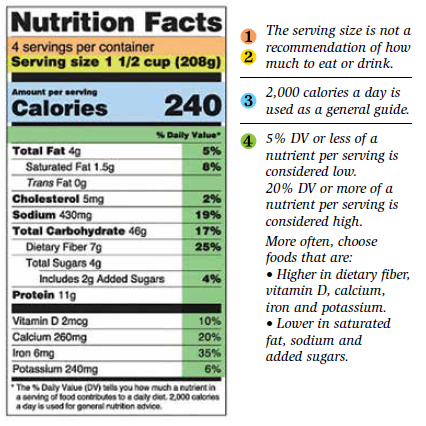

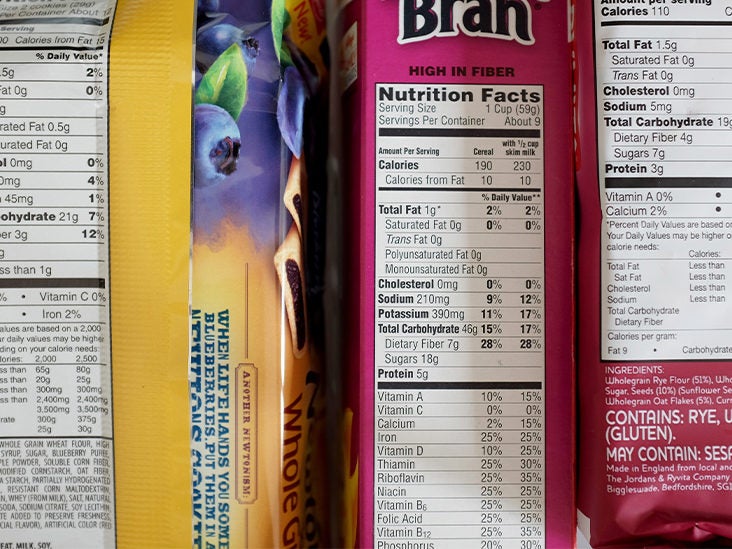
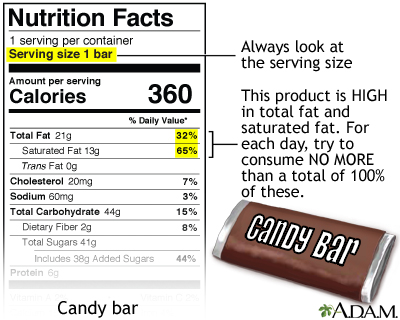



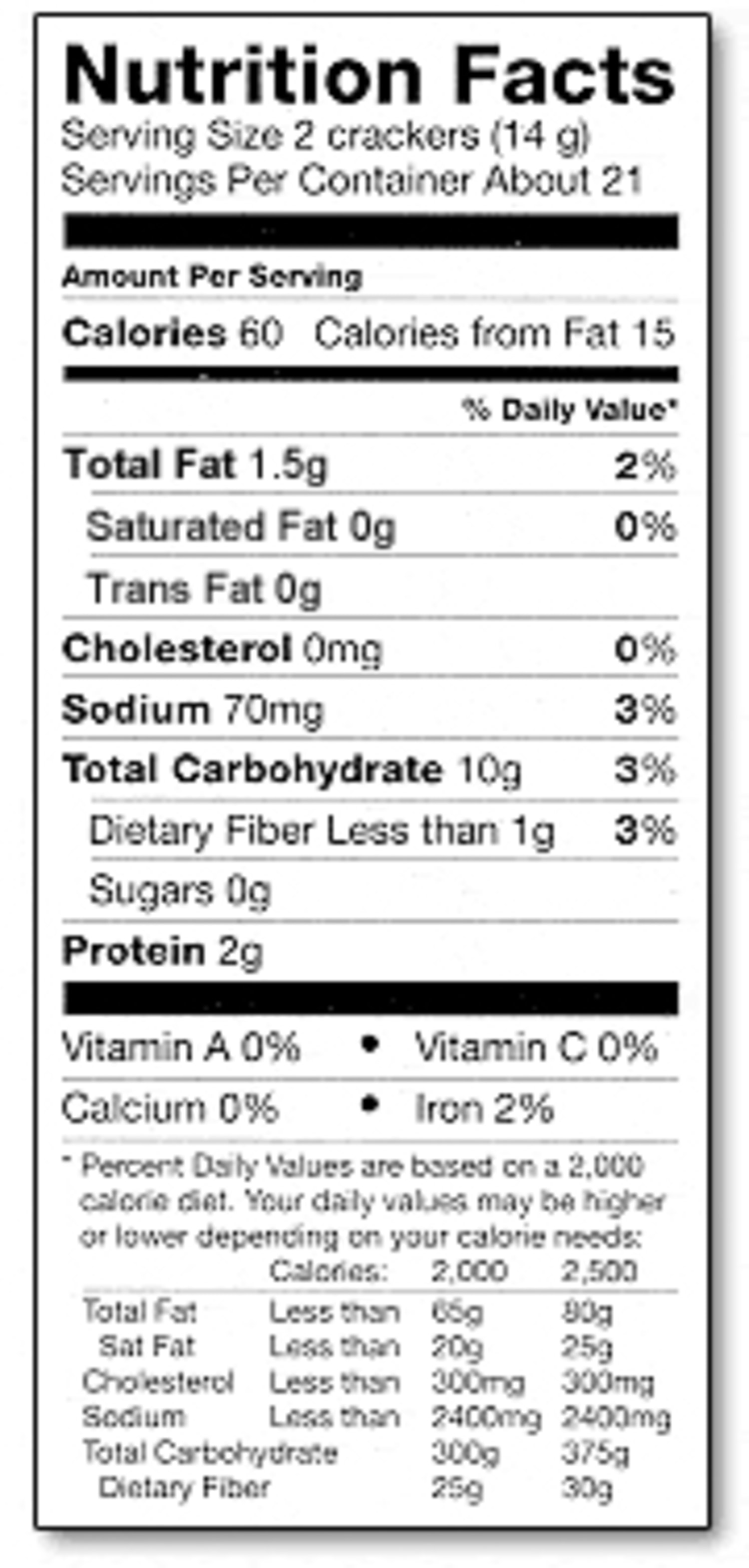



Post a Comment for "44 cholesterol in food labels"